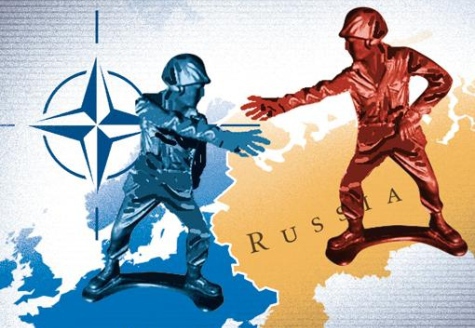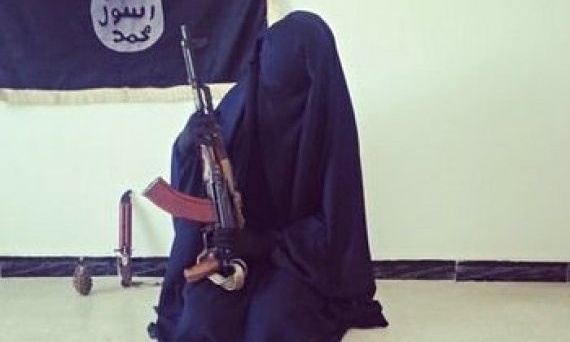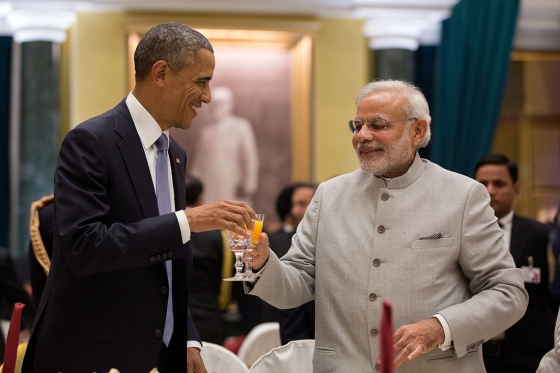See NATO’s full explanation here.
Russia claims that NATO has spent years trying to marginalize it internationally.
• NATO has tried to build a cooperative relationship with Russia on areas of mutual interest since the early 1990s; NATO created the Partnership for Peace and the Euro-Atlantic Partnership Council open to all of Europe
• Russia has been treated as a privileged partner; in 1997 Russia signed the Founding Act on Mutual Relations, Cooperation and Security, creating the NATO-Russia Permanent Joint Council which was upgraded to the NATO-Russia Council in 2002
Russian officials say that NATO should have been disbanded at the end of the Cold War, and that the accession of new Allies from Central and Eastern Europe undermines Russia’s security.
• NATO’s open door policy has always and will continue to be based on the free will of European democracies
• NATO accession has helped the countries of Central and Eastern Europe make the difficult transition to democracy, rule of law and created substantial economic growth initiating a period of greater freedom in all of Europe than any other time in history
• NATO respected Ukraine’s “non-bloc policy” in the past, thus it is false to claim NATO has tried to force Ukraine into its ranks
• When Russia signed the Founding Act on Mutual Relations, Cooperation and Security in 1997 it committed to “creating in Europe a common space…without…spheres of influence” and “respect for sovereignty, independence and territorial integrity of all states”
• Contrary to those commitments, Russia is attempting to recreate its old Soviet sphere of influence in Eastern Europe
• Independent Russian military experts agree NATO’s missile defense program will not threaten Russia
Russian officials claim that US and German officials promised in 1990 that NATO would not expand into Eastern and Central Europe, build military infrastructure near Russia’s borders or permanently deploy troops there.
• NATO made no such pledge
• Russia has no evidence such a pledge was made, as any formal pledge by NATO would have been in writing and agreed on by all members, not simply two member states
• NATO never promised not to build infrastructure close to Russia, in fact in reaffirmed the opposite in the Founding Act which Russia signed
• NATO has taken steps to increase the defensive capabilities of its allies in Eastern Europe in accordance with the Founding Act and as a direct response to Russia’s aggression in Ukraine
Russian claims that NATO has ignored its concerns over missile defence.
• Russia was invited to cooperate with NATO over missile defense at the Lisbon Summit of 2010
• NATO reiterated at the Chicago Summit in May 2012 that its missile defence “will not undermine Russia’s strategic deterrence capabilities”
• NATO proposed a transparency regime including 2 NATO-Russia joint missile –defence centres which Russia declined
Russia has attacked the legitimacy of some of NATO’s operations.
Libya
• The 2011 NATO-led operation to protect Libyan civilians was launched under the authority of two United Nations Resolutions 1970 & 1973
• Neither were opposed by Russia
• NATO received political and military support from members of the Arab League
• UN International Commission of Inquiry on Libya concluded “NATO conducted a highly precise campaign with a demonstrable determination to avoid civilian casualties.”
Kosovo
• The NATO operation in Kosovo followed over a year of intense efforts by all members of the Balkan Contact Group to which Russia was a member
• The United Nations Security Council called the situation in Kosovo a case of ethnic cleansing multiple times and the number of refugees to be a threat to international peace and security
• NATO’s operation in Kosovo was launched without a Security Council resolution in response to large scale and sustained violations of human rights and the killing of civilians
Russia claims that the Ukrainian authorities are illegitimate.
• The Acting Ukrainian President and government was voted in on February 27, 2014 by a majority of Ukraine’s parliament: 371 out of 417 in favor
• Ukraine parliament is elected October 28, 2012; its election was accepted by the Russian Foreign Ministry as peaceful and democratic
Russia claims that the so-called referendum in Crimea was legal.
• the referendum was illegal according to the Ukrainian Constitution
• the referendum was carried out by a self-proclaimed Crimean leadership which was installed by armed Russian personnel
Russia claims that the annexation of Crimea was justified by the opinion of the International Court of Justice on the independence of Kosovo.
• The International Court of Justice ruled that its opinion on Kosovo’s independence was not to be a precedent for any other case
• Kosovo’s declaration of independence was the culmination of an extensive process led by the United Nations and took nearly a decade rather than 1 day as in the case of Crimea




